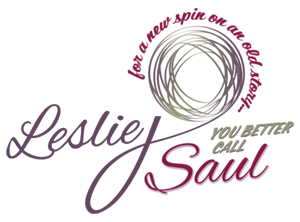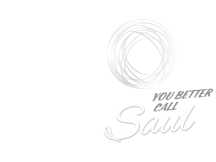Managing Rage: The Emotional Go-Bag
In the Midwest, y’all have a plan in place for tornadoes. You likely have a basement, some non-perishable goods, and an evacuation procedure for large buildings. In California, families discuss where to go if a wildfire sparks nearby. Your communities have designated shelters. There are retirement funds and the paying off of student loans. We plan for the future! It can all make us feel quite secure.
But in the meantime, even with planning, life happens. We get fired from a solid job. A marriage ends. Car accidents and deaths occur with less frequency, but these moments and experiences rock us. They CHANGE us.
Not only are these events just awful, but they also can provoke us to react in awful ways — seemingly out of nowhere. In my last blog post, I wrote about dealing with rage and its true nature. I’ve found that rage can be prompted by stuff we’ve buried way, way deep. Sometimes it’s popping up because of issues we didn’t even know were there. Let me explain:
Managing Rage, Trauma, Disaster, and Other Things We Don’t Like Very Much
 Let’s talk about trauma for a moment, then we’ll come back to rage.
Let’s talk about trauma for a moment, then we’ll come back to rage.
The APA defines it as an emotional response to a disaster. What’s even more messed up is that the disaster doesn’t have to happen TO us in order for us to feel its impact. Some trauma is inherited. It literally leaves an imprint on our genetic code. Significant research in this field has been done on Holocaust survivors and their offspring. The most well-known is a study conducted at Mt. Sinai Hospital and released in 2015. While researchers were not able to prove definitively that this “inherited trauma” would result in higher stress levels for the children, they were able to show that their genes had been altered as a result of their parents’ experience. It’s pretty fascinating stuff.
In New York City, close to my hometown of Long Island, the impact of 9/11 is still felt almost a decade later. I wasn’t in the state at the time, but I can tell you that I felt that day to my very core.
Heck, even if the stuff that doesn’t affect us directly can affect us directly. Ever had a coworker going through a really rough time for weeks on end? It affects the environment, the mood, stress and anxiety levels . . . like they are spraying Eau de Discomfort all over the room day in and day out.
So, how do we deal with trauma and prevent outbursts down the line (i.e. rage)?
We’re not particularly great at it, to be honest. Some of us react by curling up tightly into a ball like a big armadillo. Some of us rage at the dying of the light. Picture Bender at the end of The Breakfast Club, in sunglasses and a trench coat, punching the sky as he finally gets out of detention. Oh, we get SO emotional about no longer feeling like we are in control. We send up big SOS and HELP signs that are hard to recognize by anyone who isn’t suffering. It all breeds feelings of abandonment to add to our sense of loss.
And trust me when I say that trauma has a LOT to do with rage. You may be saying, “But, Leslie, I wasn’t thinking of past trauma the last time the top of my head blew off!” Perhaps not! But I guarantee it likely contributed to the lighting of the match.
The Emotional Go-Bag
All of this gets me thinking. Why don’t we create an emotional go-bag? A big emergency pack to help you deal with the emotional stuff, just like a survival bunker helps a doomsday prepper with the Apocalypse. It’s entirely possible!
My work as a personal and professional coach dives into emotional work on a regular basis. You can read all about how I use neuro-linguistic programming here. And no, I cannot erase past hurt and pain. What I CAN do is use proven tools and modalities to build a customized strategy and get you through it. Out the other side and on with your life.
Emotional Help for Life’s Surprises
 Prepping an emotional go-bag includes a few avoidance methods. We’re going to actively step away from the chaos and the disarray.
Prepping an emotional go-bag includes a few avoidance methods. We’re going to actively step away from the chaos and the disarray.
We’re also going to keep you in the NOW. I’ll help you understand why it is so important to stay present and focused on the tangible.
Finally, we’re going to set you up for success with ways to deal with those nasty feelings when they do eventually pop up. Meditation. Mindful journaling.
With my help, you can get to a place where you can handle the stuff in your control. Then, when unpredictable things happen, they can be tackled from a position of strength. I want to tell you all about this stuff one-on-one. Let’s set up some time to chat! We can build your emotional go-bag as a team.
TABLE OF CONTENTS








